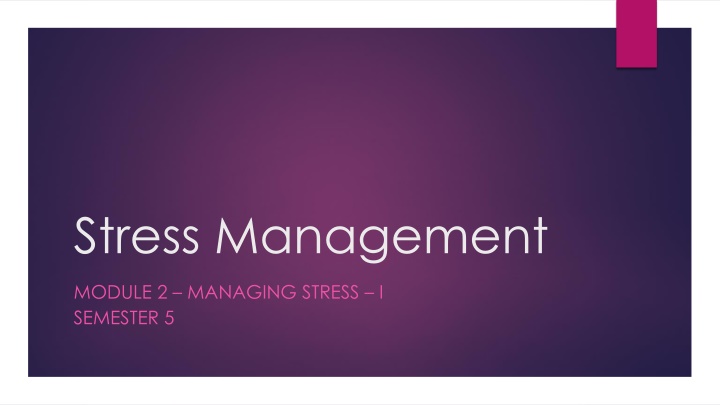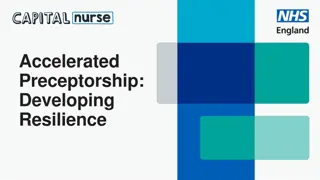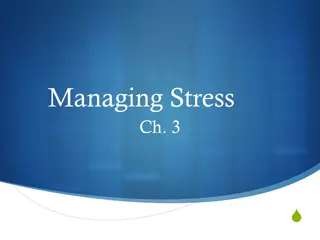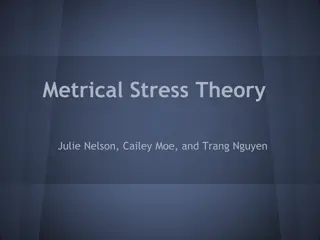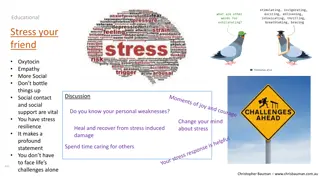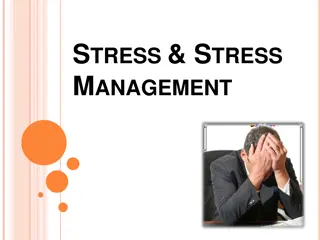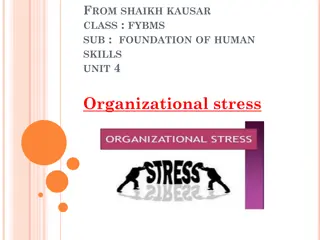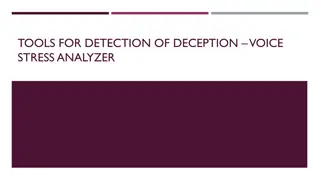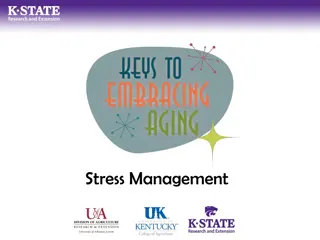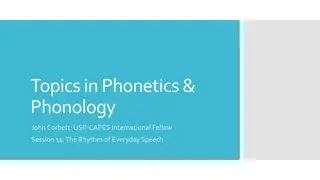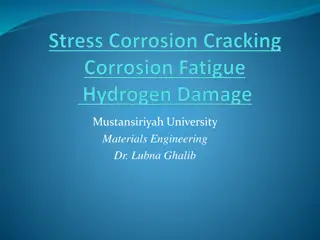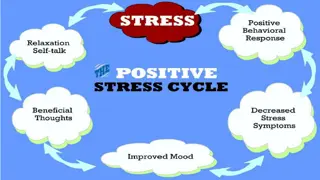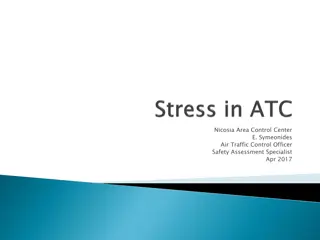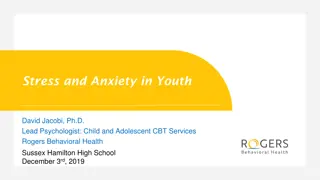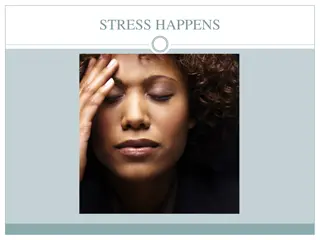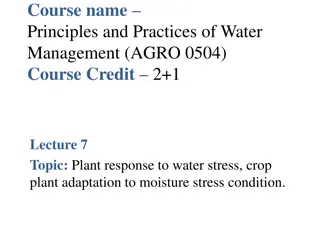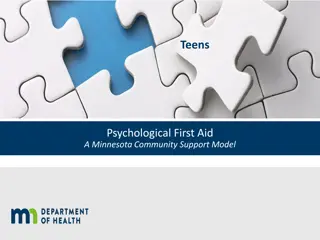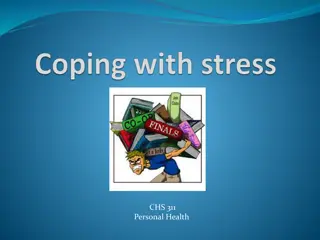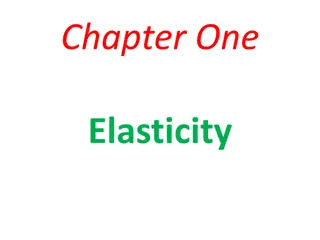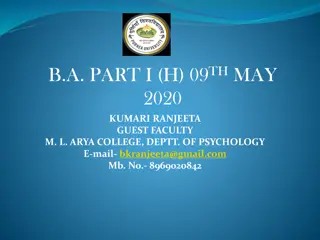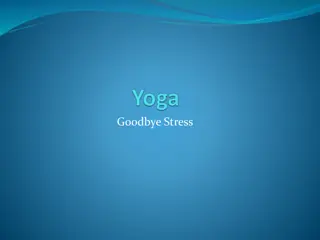Techniques and Strategies for Managing Stress and Anxiety
Stress and anxiety can significantly impact our well-being, but with the right techniques and strategies, we can effectively manage them. This module explores pre-requisites for a stress-free life, concepts of relaxation, various relaxation techniques, including self-hypnosis, acupuncture, and reflexology. It also delves into the meaning of anxiety, types of anxiety disorders like Generalized Anxiety Disorder (GAD), and how to cope with anxiety effectively.
Uploaded on Dec 08, 2024 | 1 Views
Download Presentation

Please find below an Image/Link to download the presentation.
The content on the website is provided AS IS for your information and personal use only. It may not be sold, licensed, or shared on other websites without obtaining consent from the author.If you encounter any issues during the download, it is possible that the publisher has removed the file from their server.
You are allowed to download the files provided on this website for personal or commercial use, subject to the condition that they are used lawfully. All files are the property of their respective owners.
The content on the website is provided AS IS for your information and personal use only. It may not be sold, licensed, or shared on other websites without obtaining consent from the author.
E N D
Presentation Transcript
Stress Management MODULE 2 MANAGING STRESS I SEMESTER 5
Pre- Requisites Of Stress Free Life Following Routine Prepare a To-do List Accepting Challenges Willingly Constant Self-Monitoring Focus on Goals Avoid Pro-crastination Focus on One thing at a time Simplification of Schedule Practice calming, relaxation and meditation
Concept of Relaxation The state of relaxing or of being state of Relaxed. A relaxation technique is any method, process, procedure, or activity that helps a person to relax; to attaina state of increased calmness, or otherwise reduce levels of pain, anxiety, stress or anger. Relaxation techniques are often used to treat stress and can decrease muscle tension,lower the blood pressure and slow heart and breath rates.
Techniques Of Relaxation Breath Focus Body Scan Guided Imagery Mindfulness Meditation Yoga, tai chi , and qigong Repetitive Prayers Self-Hypnosis Other Techniques
Anxiety MEANING: Anxiety is a general term for several disorders that cause nervousness, fear, apprehension, and worrying. These disorders affect the way we feel and behave and can also cause physical symptoms. Mild anxiety is vague and unsettling, while severe anxiety can seriously affect day-today living According to American Psychological Association (APA)anxiety is "an emotion characterized by feelings of tension, worried thoughts and physical changes like increased blood pressure." Anxiety is thus a natural human reaction to stressful situations, but becomes a condition when it frequently occurs without a trigger. This leads to anxiety disorder.
Types of Anxiety
Machenisams to cope up with Anxiety Self Treatment a. Stress Management b. Relaxation Techniques c. Exercises to replace negative thoughts with positive ones d. Support System/ Network Counseling Medication Preventive Techniques
Concept of Stress A hormone called cortisol is released into our bloodstream, when an individual is stressed that adversely affects the digestive and reproductive systems. Hence it becomes very important to practice stress management inorder to keep our minds and body healthy. Stress management consists of making changes to one'slife if one is in a constant stressful situation, Preventing stress by practicing self-care and relaxation and managing one s response to stressful situations when they do occur. Stress is actually a survival response when the body thinks that it is in danger.
Features of Stress Management It is a process It acts as a social system Add meaning to an individual s life Involves combination of techniques Helps to maintain good health
Benefits of Stress Management 1. Helps to build a strong company culture 2. Reduces Employee Absenteeism 3. Employee retention & Talent acquisition 4. Increases work commitment 5. Creates conducive work climate 6. Improves the employer employee relationship 7. Improves the quality of decision making 8. Improves organizational productivity
Managing Stress Managing stress at individual level Physical exercise Role of organization in managing stress Supportive organizational climate Job enrichment Organisational role clarity Career planning and counselling Stress control workshops Employee Assistance programs Sabbaticals Proper selection, placement and training Relaxation Work-home transition Coginitve therapy Networking Effective time management Foresighted nature
Approaches to manage stress 1. Action Oriented 2. Emotionally- Oriented 3. Acceptance Oriented
